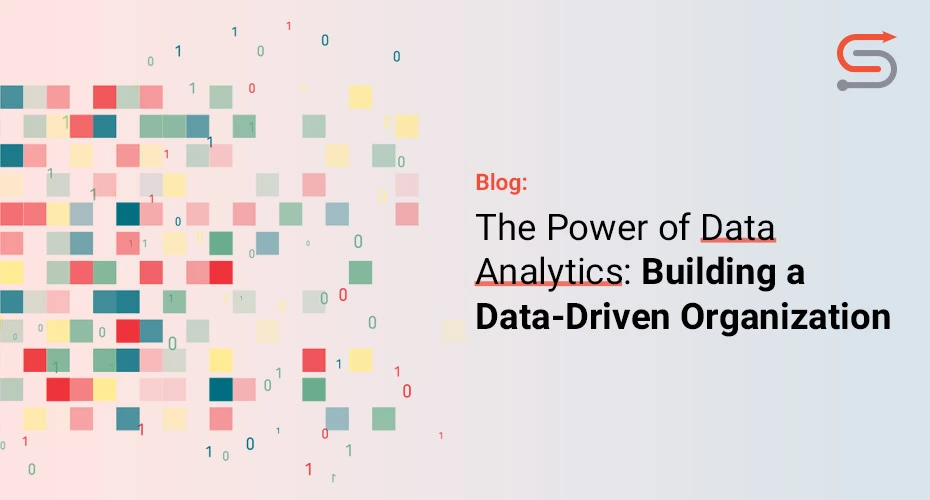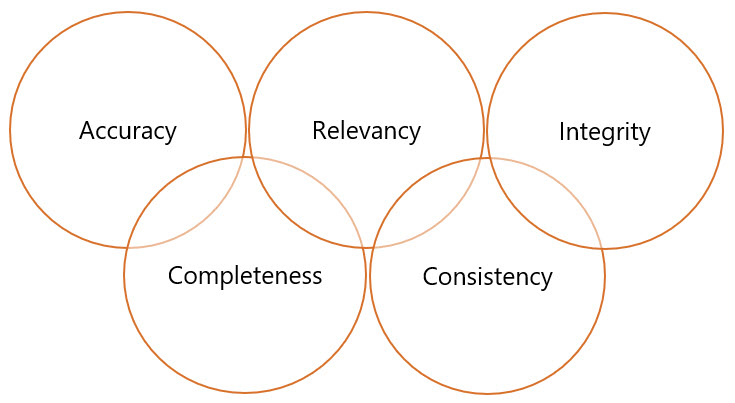

May 26, 2023 - by Anish Purohit
Data has become the new oil powering the 21st century. Businesses today have access to a wealth of information that can be utilized to make informed and critical decisions. But traditional decision-making methods can be extremely time-consuming, hypothetical, and less accurate in predicting the future.

Companies that do not adopt a data-driven approach risk falling behind their competitors who are exploiting data to gain a competitive advantage. The right data insights strategies enable businesses to make smart decisions using empirical evidence rather than assumptions or guesswork. They can help identify new opportunities, mitigate risks, and optimize business processes for greater efficiency and cost-effectiveness.
Anish Purohit, Data Science Manager at Synoptek, has several insights to share on how businesses today can build a data-driven organization. Read to learn all about them!
A successful data-driven transformation requires a cultural shift within organizations. Leaders must prioritize data literacy and encourage employees at all levels to embrace data-driven decision-making. They must also drive efforts toward efficient data management and ensure that only clean, relevant, and updated data is used.
As a certified Data Science expert, I have been leading and managing AI/ML-backed projects for over 11 years now. I have collaborated with several cross-functional teams and helped them craft the right data strategies and embrace the right techniques. Here are five key tips I would give businesses looking to harness the power of data insights to fuel business growth:
Streamlining how data is collected, stored, managed, cleaned, and distributed across the organization’s core data entities is one of the most important steps in building a data culture. Businesses must implement effective MDM practices to ensure their data is accurate, consistent, and current.

Through effective MDM practices, businesses can
Establishing a strong data governance framework is a great way to have a set of policies, procedures, and guidelines for data management. The right framework can ensure that data is used appropriately, managed effectively, and protected against unauthorized access or misuse.
Effective data governance can help businesses:
As more and more organizations embrace Artificial Intelligence (AI) models, explainable AI (XAI) explains the decisions made by these models. It enables organizations to adopt a responsible approach to AI development. It also helps build trust and confidence when putting AI models into production.

Using XAI, organizations can:
Investment in cloud computing is a crucial part of any data-driven business strategy. With data being generated from various sources and formats, the cloud offers a flexible, scalable, and economical way to handle this data. It also makes it easy for decision-makers to access data without hindrance and make informed decisions in real time.



Using cloud-based technology, organizations can:
Ensuring data is accurate, complete, consistent, and timely via effective data quality assurance is critical to data management. With poor data quality negatively impacting business decision-making, data quality assurance helps ensure that data is reliable and trustworthy.

By enabling effective data quality, businesses can:
As the business landscape evolves, companies must adapt to emerging BI trends to remain competitive. Streamlining Master Data Management and establishing a data governance model is extremely important. In addition, incorporating explainable AI, investing in cloud-based technologies, and enabling data quality assurance can help cultivate a data-driven culture.
But given how complex data has become and how quickly critical decisions must be made, opting for Managed Analytics Services is a great way to drive value. A Data Analytics Services Partner can help conduct comprehensive market analysis and curate the right data insights strategy. A partner can also enable seamless data integration, implement the right AI and ML tools, and empower users with the right business intelligence and data insights solutions.
Discover the benefits of business analytics as a service today to harness the power of data to drive growth, outperform competitors, and meet customers’ evolving demands.
Anish Purohit is a certified Azure Data Science Associate with over 11 years of industry experience. With a strong analytical mindset, Anish excels in architecting, designing, and deploying data products using a combination of statistics and technologies. He is proficient in AL/ML/DL and has extensive knowledge of automation, having built and deployed solutions on Microsoft Azure and AWS and led and mentored teams of data engineers and scientists.